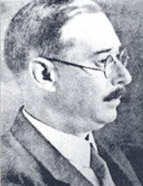

5. JC ’ s ethical-deontic added value stands out in contemporary historiography, which correlates with the epistemic prerequisites that his work clearly reflects: a compact transdisciplinary, humanistic and literary education, an unusual hermeneutic aptitude and linguistic sovereignty (Portuguese, Latin, Spanish, Italian, French; even English, German), self-demanding autonomy and thoroughness (‘mental independence and a sense of objectivity, and therefore a true scientific spirit’, see OC , III, p. 383) as signs of the craft of historiography, emphasising the public service (not public mercy or public order) of cultural studies; exceptional solidity in the mastery and treatment of sources, people would regard him as the concatenator of a heuristic school which, without abstracting from methodological teaching (Langlois and Seignobos), aimed to overcome the excessiveness of explanation; Cartesian conceptual accuracy and clarity in statements; suitable reception and debate of contradiction; breadth of field in diachrony, made possible by the macro - disciplinary vision of culture inscribed in long chronologies, from the history of expansion, techniques and the art of navigation; from the history of philosophy to political history; to literature, essays, literary criticism; didactic coherence in the teaching profession; dialogical and pedagogical competence, enhancing the critical and civic sense of the students (also at the Normal Higher Education School of Coimbra, where, with S. Lima, he was an influential lecturer); seeking international contacts par excellence, editorial mastery and an effort to be scientific and culturally up - to - date by instilling Benedictine habits, not in the habitat , but in the theoretical habitus of being (Bourdieu), in the mental task of his disciples.
The effect of distancing himself from the politique d’abord [politics first] that coerced many into betraying the scholars , which does not mean intentional abstraction ( the ivory tower , debated for decades after Benda) from the world and the time he lived in, thinking about history and historiographising thought, not without accusing them, as his work confirms, of the double embargo of freely probing themselves in the national-seminarist dictatorship.
This work is financed by national funds through FCT - Foundation for Science and Technology, I.P, in the scope of the projects UIDB/04311/2020 and UIDP/04311/2020.
